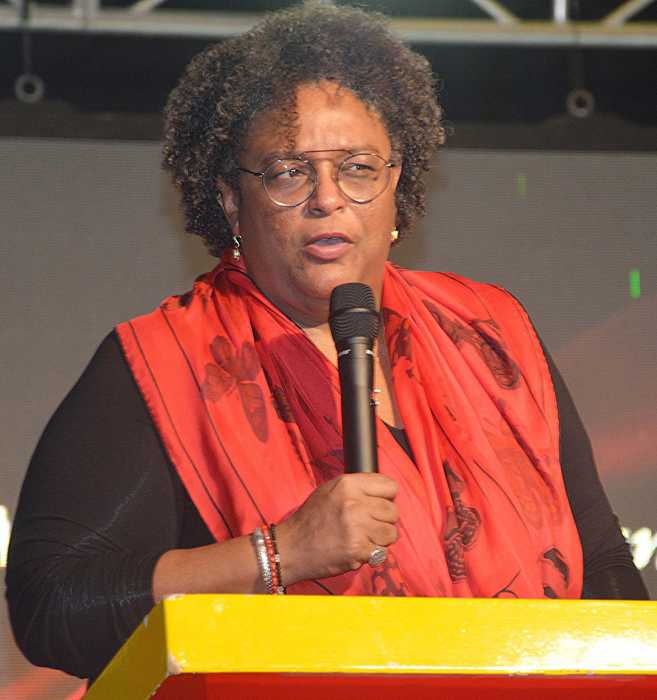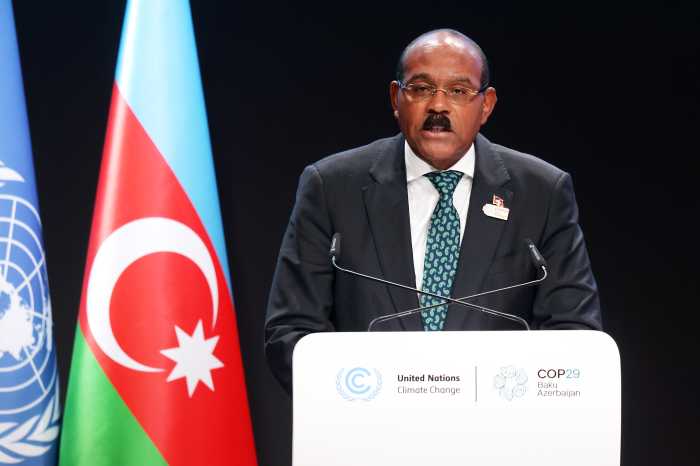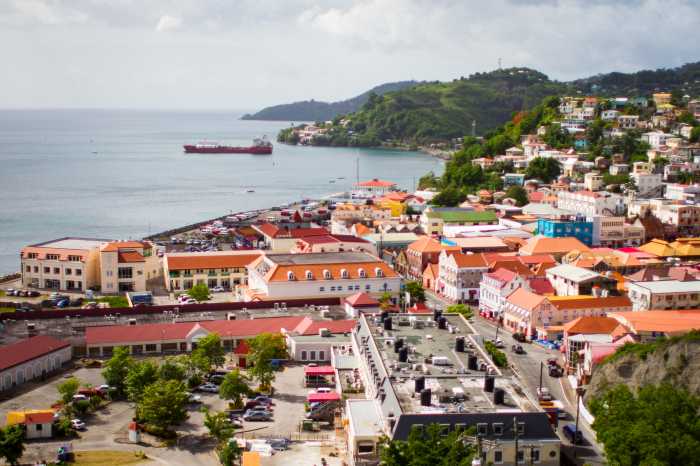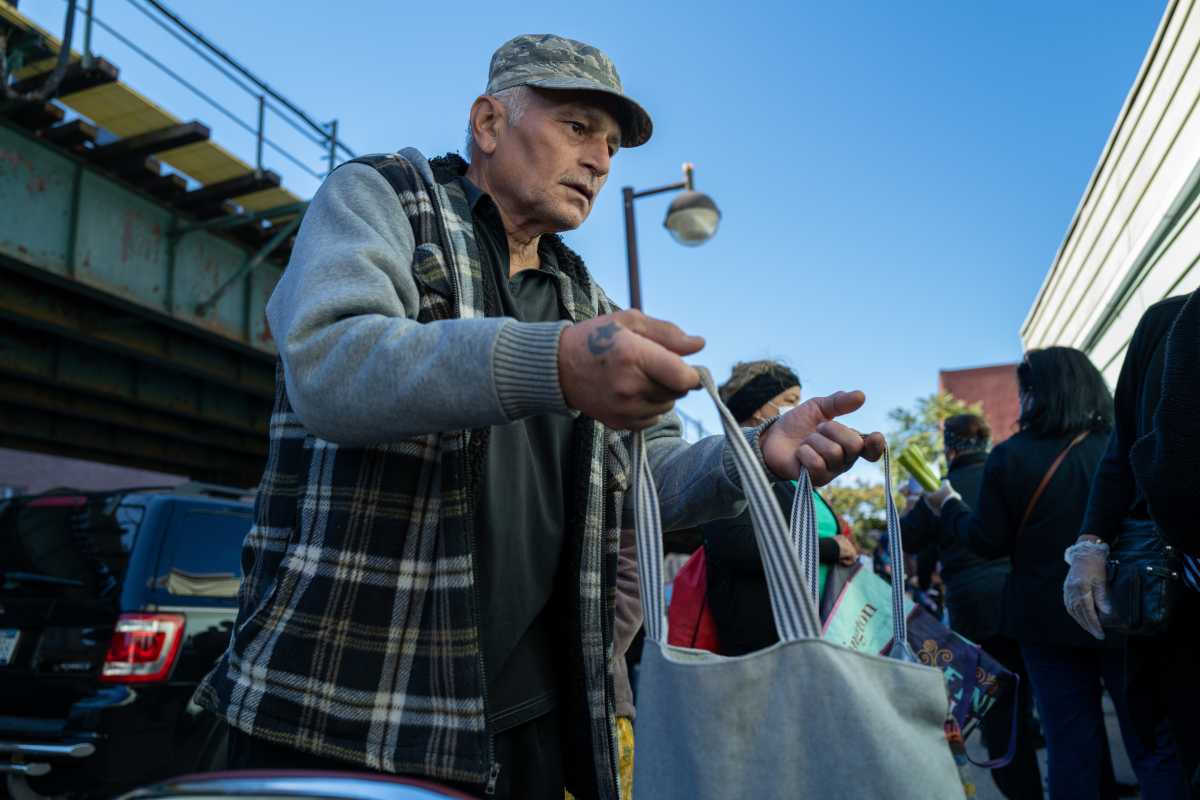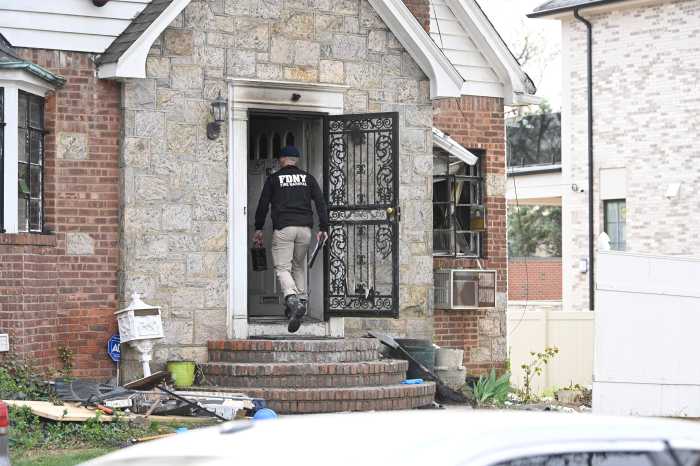Antigua and Barbuda
The Antigua and Barbuda government said it would be making a case at the upcoming meeting of the COP 29 Conference, which will be held in November in Azerbaijan, for the Loss and Damage Fund to be put into immediate effect in light of the devastation caused by Hurricane Beryl to multiple Caribbean countries.
Prime Minister Gaston Browne said, “When we go to Azerbaijan in November for the next COP meeting, we will be pushing hard for the capitalization and the operationalization of the Loss and Damage Fund.
“Additionally, one of the recommendations that we will be making to all SIDS is for them to set up a Disaster Contingency Fund to be capitalized by proceeds of the Loss and Damage Fund to be replenished from time to time.”
“We should not be in the situation where we have to have these pledging conferences and trying to determine where we are going to get resources from to recover,” Browne added.
The Loss and Damage Fund was designed to provide critical support to vulnerable nations facing the brunt of climate-related challenges. Which means that countries, communities and organizations will be able to apply for money under the fund to address human mobility needs.
Caribbean
Hurricane Beryl has not only left destruction in the the Caribbean but has forcefully reignited the debate as to the role developed countries have and continue to play in warming the earth.
Dr. Carla Barnett, the secretary general of the 15-member regional integration grouping CARICOM, said it has been a “frightening start” to what is forecast to be a very active hurricane season.
“The devastation to our region has brought sadness to everyone,” she said.
“The immediate focus has to be on restoring normalcy to our people and communities, and building resilience as we face the rest of this hurricane season, and beyond.”
In February this year, global temperatures surpassed 1.5 degrees Celsius and before the state of the 2024 Atlantic Hurricane season, the World Meteorological Organization (WTO) warned that this record could be smashed again this year, which will lead to the loss of more lives and livelihoods and place national systems and services under intense pressure.
“This pressure is disproportionately borne by Small Island Developing States (SIDS). Despite making up only three percent of the world’s land area, SIDS are vital for the whole of humanity and the planet we share,” said the Dominican-born, Commonwealth Secretary-General, Patricia Scotland.
St. Vincent and the Grenadines Prime Minister, Dr. Ralph Gonsalves, whose Grenadine island of Union took a severe battering from the storm, said his message was simple.
“For the major emitters of green- house gases, those who contribute most to global warning, you are get- ting a lot of talking, but you are not seeing a lot of action as in making money available to small-island developing states and other vulnerable countries,” he said, describing the United Nations Climate Change Conferences (COP) as mere talk shops.”
Grenada
Prime Minister of Grenada Dickon Mitchell yesterday said he remains “unapologetic” towards providing all the assistance his administration could muster with respect to the sister islands of Carriacou and Petite Martinique as the country continues to grapple with the financial aspect of the passage of Hurricane Beryl last week.
Mitchell said that the government is appreciative of the efforts shown by regional and international governments as well as regional and financial institutions and organizations in dealing with the devastation caused by the hurricane leaving a trail of death and destruction.
“There is no doubt that this disaster will have a major impact on the fiscal and financial and economic situation of Grenada. We are talking of hundreds of millions of dollars in losses and hundreds of millions of dollars to rebuild.”
“This is going to be a long and difficult situation. We are exploring all options as to how we will finance the clean up, the relief efforts and the rebuilding,” Mitchell said, adding “we need to emphasise very early that the rebuilding must have resilience factored into it.”
He said the Ministry of Finance is meeting with “some of our international and regional partners, including the Caribbean Development Bank, the World Bank, the IMF and we are also assessing whether we would need to suspend the operation of the Fiscal Resilience Act.”
The government has repealed the Fiscal Responsibility Act (2015) replacing it with the Fiscal Resilience Act (2023). It is described as a more simplified and less rigid legislation allowing for greater flexibility for the government to manage the economy and implement its transformation agenda.
Guyana
Minister of Natural Resources, Vickram Bharrat denied reports that he had been escorted off a plane on arrival at the John F Kennedy International Airport in the United States and questioned by Federal agents.
Bharrat said that the airline in question had arranged for courtesies to be extended to him to expedite the customs and immigration process.
“I was not detained or interrogated,” Bharrat said, adding that he had arrived in New York on an emergency because his father was hospitalized and “not doing well.”
In a Facebook post, Bharrat said, “Best wishes to my father for a speedy recovery…you have always been a fighter and our strength.
“Special thanks to the US authorities for the kind courtesies and professionalism,” he wrote.
Bharrat had said that the Trinidad-owned Caribbean Airlines (CAL) had informed the authorities of his presence on the flight, describing as “mischievous” the Facebook post by a veteran Guyanese journalist that he “was met, escorted off and questioned by Federal Agents at the JFK airport last night, July 11, 2024.”
Haiti
The United States has delivered various military equipment and materials to Haiti as the United Nations sanctioned Kenyan-led Multi-national Support Mission to the French-speaking Caribbean Community (CARICOM) country has warned the criminal gangs that “we have a job that we are committed to do.”
Kenya has offered to send about 1,000 troops to stabilize Haiti alongside personnel from several other countries, including The Bahamas, Antigua and Barbuda, Barbados, Belize and Jamaica. The first batch of 400 Kenyan troops arrived last month.
The United States said it would not be sending troops to Haiti, but would be providing over US$300 million in financial assistance and up to US$60 million in equipment.
Recently, a US Air Force cargo plane arrived at the Toussaint Louverture International Airport with equipment including several MaxxPro armored vehicles. In addition to receiving military equipment, the officers also received various resources to facilitate their mission, including washing machines and a host of other essential items.
The Kenya Mission Commander, Godfrey Otunge, speaking on the images published on the internet, showing Kenyan police officers in front of the American Embassy in Port-au-Prince, said that the armed Kenyan police officers were part of an escort that ensured his security.
Jamaica
Minister of Agriculture, Fisheries and Mining, Floyd Green has said that Jamaica’s agricultural sector is reported to have suffered damages estimated at more than one billion dollars as there was damage to all crop lines as a result of the passage of Hurricane Beryl.
“In fact, we have seen about 85 percent of our banana and our plantain lines go down in Portland and St. Mary, but when you come to the southern parishes.
“Our vegetable lines and tubers such as cassava…we have seen a lot of damage to fruit trees, ackee, breadfruit and unfortunately, there was significant damage to our green- house farmers,” he added.
“We do understand that it needs a quick response at this time and we know our farmers are out there and, thankfully, they are resilient. So, they are planning to get back to farming and we at the ministry will be willing to assist them.”
Outlining the damage to the greenhouse farmers, the minister said that an estimated 90 percent of producers across the southern parishes of Clarendon, Manchester and St. Elizabeth were affected, with several of them losing crops and structures.
He said livestock farmers have also been significantly impacted, especially those producing poultry.
Green said that entities under the ministry were also impacted, with the National Irrigation Commission’s (NIC) renewable energy site in St. Elizabeth sustaining significant damage.
He noted that the NIC has been unable to pump water to farmers due to electricity challenges and is seeking a solution to ensure that farmers “can get back into their fields.”
Green appealed to the private sector to aid in the recovery effort, as an “all hands on deck” approach is needed.
— Compiled by Devika Ragoonanan


